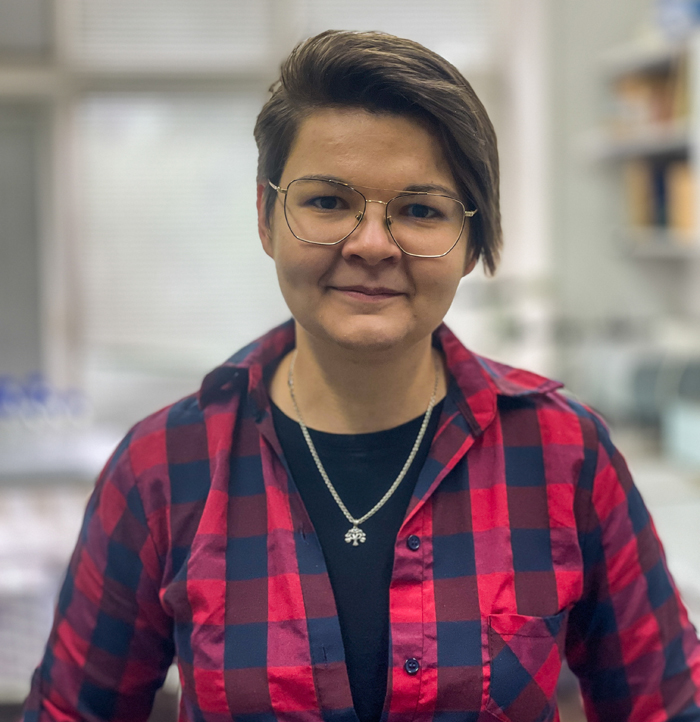The European Rover Challenge event was first held in 2014 in Podzamcze Chęcińskie in Poland. Since then, it has attracted hundreds of young engineers and thousands of visitors each year, eager to see the competition of world’s best Mars rovers. Over a decade, the European Rover Challenge has grown into a renowned international event. Not only does the ERC inspire young scientists and engineers, it also promotes innovation and cooperation between science and business.
To celebrate the 10th anniversary of the ERC, we’ve prepared nearly 100 photos for you (including many previously unpublished), trivia and stories of people associated with the ERC. As you scroll down, you’ll learn how Europe’s largest space and robotics event has evolved over the years. You’ll explore the key moments that shaped the ERC, and learn that with passion and commitment, nothing is impossible. Let’s rediscover the history of ERC!
The first edition of the ERC was held on September 5-7, 2014 at the Regional Science and Technology Center in Podzamcze Chęcińskie, near Kielce. Nine teams from Poland, Lithuania, India, Egypt and Colombia competed in the competition.
Simultaneously with the competition there was an international conference “Man in Space” organized by The Mars Society. Among the guests were Professor Scott Hubbard – former head of NASA AMES and Robert Zubrin – founder of The Mars Society.
From the very beginning, a science and technology picnic was an integral part of the event. The first ERC attracted more than 25,000 visitors from Poland and around the world!
1st place: SCORPIO, Poland
2nd place: IMPULS, Poland
3rd place: Lunar and Mars Rover Team, Egypt

Wojciech Glazewski, judge of the European Rover Challenge since 2014. Member of the first winning team at the University Rover Challenge 2011.
[…] The first ERC in 2014 was the beginning of a great adventure. Lukasz asked me to prepare the rules of the competition, while he took care of the organization with the support of Mars Society Poland. We were looking for our own formula that would distinguish us in the region. The URC competition is held in a special research habitat in the middle of the desert in Utah. We decided that our differentiator would be the audience – openness to visitors, sharing knowledge and passion for rovers. This was the start of “rover frenzy” in Poland! […]
The second edition of the competition also took place on the premises of the Regional Science and Technology Center on September 5-6, 2015. The competition attracted many more, as many as 24 teams, including those from: USA, Australia, India, Colombia, Netherlands, Egypt, Poland and Canada.
The special guest of the second edition of the ERC was Dr. Harrison Schmitt – a member of the Apollo 17 crew, the twelfth and last man on the Moon.
Professional robots used by the military and police forces were also presented.
1st place: USST, Canada
2nd place: Next, Poland
3rd place: McGill Robotics, Canada
In 2016, the competition was held in Jasionka near Rzeszow on September 10-13. Forty-four teams competed, including those from: Poland, Australia, Canada, Bangladesh, India, Turkey and Nepal.
A major event at the ERC 2016 was a citizens’ debate on the future of space exploration, organized by the European Space Agency. The debate was held simultaneously in 22 countries, and was attended by 2,000 people. It addressed topics including: the exploitation of space, the use of its riches, and the growing pollution of space. Its purpose was to survey public opinion, and the results were to be taken into account when the ESA was developing strategies for future activities.
1st place: Raptors, Poland
3rd place: Impuls, Poland
3rd place: McGill Robotics, Canada

Dr. Eng. Daria Serafin, a European Rover Challenge volunteer since 2016 and a scientist specializing in the topic of high-temperature corrosion.
My first memory of the ERC goes back to 2016, when I was still studying in Rzeszow. At the time, I was active in the student organization AIESEC and learned that volunteers were being sought for a major space event. I hadn’t heard of ERC before, it was a complete novelty for me. I signed up for one day, having in the back of my mind that if I didn’t like it I could always quit. In the end I stayed the full 3 days and the experience is still in my memory. This volunteering definitely changed my life! […]
The fourth edition of the European Rover Challenge was organized in Starachowice, on the grounds of the Museum of Nature and Technology. Fifty-six teams from 16 countries took part in the competition.
The special guest of ERC 2018 was Tim Peake – an ESA astronaut who worked on the International Space Station.
For the first time, the competition was accompanied by the Pro Formula – designed for space sector professionals and space robot builders, who, without participating in the competition, could test the performance of their designs on the Martian track.
1st place: Impuls, Poland
2nd: Raptors, Poland
3rd: Robotics for Space Exploration, Canada
The 2019 ERC competition was held at the Kielce University of Technology in Kielce on September 13-15. More than 40 teams qualified to participate in the competition. Among the finalists were representatives of Germany, Canada, Great Britain, Poland, Turkey, India and Australia, among others.
The fifth edition of the competition was accompanied by a Mentoring and Business Conference, attended by representatives of the space sector from Poland, Europe and the world, including: Steve Jurczyk, Associate Administrator of NASA, Maria Antonietta Perino of Thales Alenia Space, Gianfranco Visentin and Pantelis Poulakis of ESA and Artemis Westenberg of Explore Mars Europe.
1st place: Impuls, Poland
2nd place: AGH Space Systems, Poland
3rd place: RoverOva, Poland
The sixth edition of the ERC was held at the Kielce University of Technology in Kielce from September 11-13.
Despite the COVID-19 pandemic, the ERC was held as one of the few events of this scale. Taking on the challenge, the sixth edition of the ERC was the first to be held in a remote formula. The competition was conducted using the Freedom Robotics platform and Leo Rover mobile rovers.
The 2020 edition was the first to be broadcast live on the organizer’s website during the three days of the event.
Guests at the ERC 2020 industry conference included: Natalia Lemarquis – United Nations Office for Outer Space Affairs Space4Women; Giuliana Rotola – European Southern Observatory; International Space University; Maria-Gabriella Sarah – European Space Agency; Gianfranco Visentin – European Space Agency; Douglas Terrier – National Aeronautics and Space Administration; Pascale Ehrenfreund – International Astronautical Federation; Space Policy Institute; Ken Davidian – Federal Aviation Administration.
1st place: ERIG e.V., Germany
2nd place: RoverOva, Czechia
3rd place (ex aequo): DJS Antariksh, India and Robocol, Colombia
The seventh edition of the ERC was held at the Kielce University of Technology in Kielce from September 10-12. The 2021 edition was the first to be held simultaneously in two formulas: remote and on-site.
A special NASA photo exhibition, prepared in cooperation with the U.S. Consulate in Krakow, under the theme “From the Moon to Mars”, attracted a lot of interest. In turn, in cooperation with the Lunares research station, a live three-day connection to the ongoing international mission for analog astronauts in the habitat was also conducted.
Speakers during the three-day broadcast of the event included: Robert D. Cabana – NASA Associate Administrator; Robert Zubrin – The Mars Society, Pioneer Astronautics; Annalisa Donati – EURISY; Maria Antonietta Perino – Thales Alenia Space; Grzegorz Wrochna – Polish Space Agency; Artemis Westenberg – Explore Mars Europe.
1st place (on-site): Impuls Team, Poland
1st place (remote): DJS Antariksh, India
2nd place (on-site): ITU Rover Team, Turkiye
2nd place (remote): ERIG, Germany
3rd place (on-site): EPFL Xplore, Switzerland
3rd place (remote): RoboClyde, UK
The eighth edition of the ERC was held at the Kielce University of Technology on September 9-11. As in the previous year, this edition was conducted in two formulas: remote and on-site.
The replica of the spacesuit of Neil Armstrong, the first man on the Moon, specially fetched from the United States, as well as the live connection with the crew of the Nautilus research vessel, carrying out an expedition to the bottom of the Pacific Ocean, attracted great interest.
Due to a sudden breakdown in the weather, for the first time in the history of the competition, the jury decided to extend the competition to late at night to make the most of the good weather.
1st place (on-site): AGH Space Systems, Poland
1st place (remote): DJS Antariksh, India
2nd place (on-site): EPFL Xplore, Switzerland
2nd place (remote): Mars Rover Manipal, India
3rd place (on-site): ITU Rover Team, Turkiye
3rd place (remote): Project RED, Italy
The ninth edition of the ERC was held at the Kielce University of Technology in Kielce on September 15-17. Thirty-five academic teams took part in the finals: 20 of them competed stationary, and 15 connected remotely.
The special guest of ERC 2023 was Slawosz Uznański – project astronaut of the European Space Agency.
Broadcasts of the event included: Les Johnson – physicist, award-winning science-fiction author and well-known NASA engineer, Prof. Alessandro Golkar – professor at MIT and the Technical University of Munich – specialist in Nanosatellites and Satellite Constellations, former vice-president of Airbus, Maria Antonietta Perino – Director of the Exploration of the Space Economy and International Network of Thales Alenia Space, Shelli Brunswick – Chief Operating Officer of the Space Foundation, Raphael Roettgen of E2MC Ventures, and Nico Dettmann – Group Leader of Lunar Exploration Project Development at ESTEC.
1st place (on-site): AGH Space Systems, Poland
1st place (remote): Makercie, Netherlands
2nd place (on-site): FHNW Rover Team, Switzerland
2nd place (remote): DJS Antariksh, India
3rd place (on-site): EPFL Xplore, Switzerland
3rd place (remote) Project RED, Italy
The tenth edition of the European Rover Challenge will be held on September 6-8 at the AGH University of Krakow. Thanks to live streaming in social media and on the event’s website, the competition and the conference will be available for audiences from all over the world to watch.
“Steep cliffs, a maze of isthmuses that are complicated to navigate, and numerous pitfalls associated with landslides, glacial formations and even small volcanoes will await the competitors,” mentions Dr. Anna Losiak, planetary geologist and chief designer of the ERC Marsyard.
The European Rover Challenge is a project that has been around for almost 10 years and could not have grown and flourished if it weren’t for the wonderful Partners supporting the project and the amazing people whose hard work, dedication and passion for space have made it possible to create such a remarkable event. You are wonderful – each and every one of you is part of the ERC’s success! Thank you.